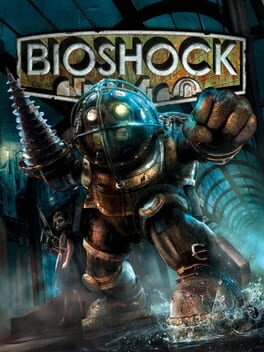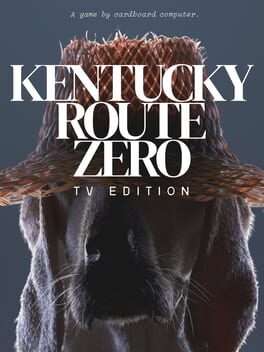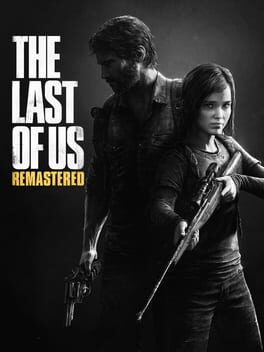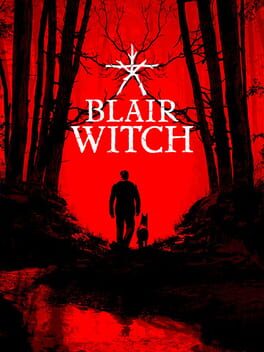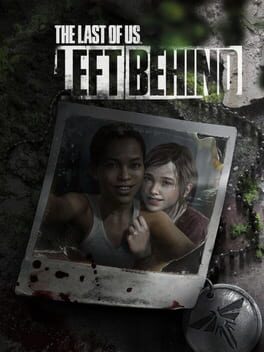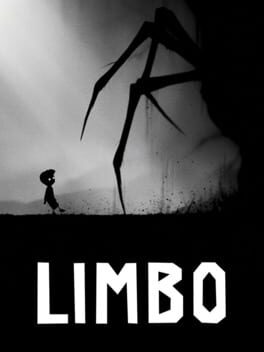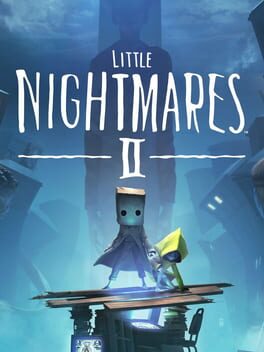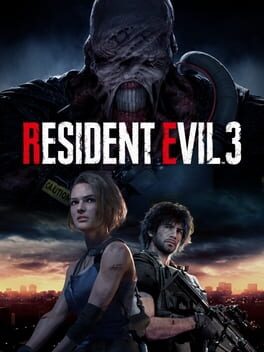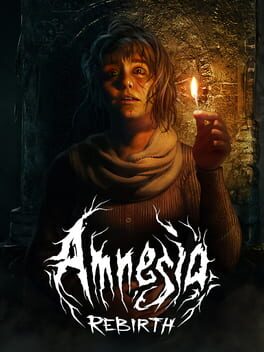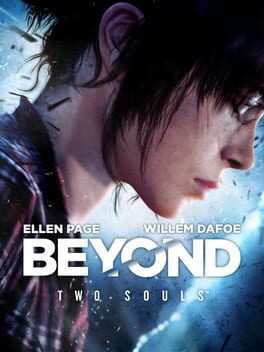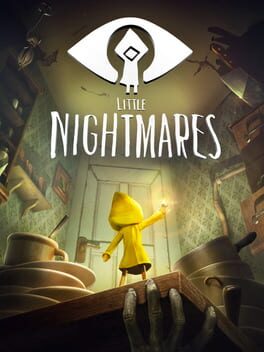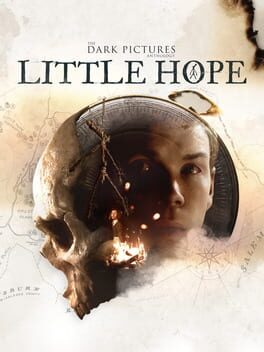pulpfuertes
2007
Really wish the majority of the third act didn't exist. Doesn't quite diminish the sheer intensity and beauty of the world building and the atmosphere it evokes but the overall experience certainly deflates with its blandly visualized final areas (especially following the dynamism of Arcadia, Fort Frolic, and Hephaestus), constant enemy spawns and security bots/turrets and a lack of ammo/health to compensate for the surge in difficulty. One can tell the developers lost a bit of imagination following the iconic twist and it's a shame because this is an otherwise vividly absorbing and horrifying game thanks to the immaculate sound work and environmental design. Awkward combat encounters and bloated third act aside, this is a near masterwork. A game that struggles to find the balance between pleasing FPS fans and those who look for substance but nonetheless a watershed moment for the medium.
A hard game to describe and an even more difficult one to quantify. What started as something I deeply admired as a murky, occasionally moving exploration of capitalism’s inherent stranglehold on middle to lower class Americans slowly transformed into one of the most consuming and gorgeous works of art I’ve experienced in any medium. With each act, the ensemble growing in number and the mystery increasingly folding in on itself through magical surrealist imagery and an ambient rural atmosphere, I found myself less so questioning the meaning of the thematic poignancy behind these elements and just succumbed to the emotional prowess and tenderness on display. Albeit refreshingly nuanced in these expressions of grief, longing, regret, and so on it’s in the game’s pronounced moments where it shines the most and gives levity to the entirety of the narrative. “Too Late to Love You” may be the iconic standout but playing Xanadu, deconstructing the play in “The Entertainment”, discovering the haunted distillery, and listening to voicemail messages on a barge proved just as profound amongst a dozen or so other cherished sequences.
I’m all the more happy I ended up settling in for what would prove to be an overwhelmingly dense masterwork in storytelling and atmosphere because there were times when the straying gameplay tested my attention span with its meandering conversations and cumbersome movements. Even as I write this review my mind spins with the dizzying tangents this game takes the player on; components unique to this medium solely because of its interactivity. It just can’t be done on film or prose alone. The stunning visual compositions and lush soundtrack are only gravy to what Cardboard Computer accomplishes with their rich screenplay and cleverly nuanced direction. It’s all meant to serve a greater purpose that transcends being a “novel” or a “film” or a “play”, let alone a video game. Its potent fluidity between all of them is what makes it the powerful experience that it is and yet it ultimately pitches its tent as a game.
While it spends its first two acts building up a proper narrative and giving the player a decent amount of lore and character backstory to chew on to push them through, after that brief initiation the game becomes an odyssey-like trek into the waking unknown, culminating in what can only be described as Heart of Darkness but make it tranquil space country vibes (with a dash of unease). A purgatorial journey on the Echo River where the mundane stops along the way unknowingly determine the fate of society as these characters know it, leading to an ethereal apocalyptic landscape where God is an overseeing cat and the player a director to this sweeping game of life. Our choices, neither right or wrong, are about providing context to the jinxed voids presented before us. They have their lives and have made their decisions, however exist to be defined by the player. Maybe those words are nonsense to the uninitiated who haven’t played this or maybe I missed the point but it’s how it made me feel right now.
This is a game that demands patience and rewards those willing to take their time with it. It wants to be felt in a spiritual sense rather than intently understood through an intellectual lens and even then to dissect the game’s many literary, cinematic, theatrical, religious, etc influences and references would probably prove just as fulfilling. This is as much a video game about creating and commodifying art and the futile process behind it all as it is one about studying and making sense of it. Some call it Lynchian in that respect but I’m as much inclined to compare it to the films of Terrence Malick; wandering souls attempting to reason with the reality of death and the emotional toll it takes to wrestle with mortality. It’s amazing how despite containing obvious homage to the original Twin Peaks, Kentucky Route Zero is as much a spiritual precursor to what Lynch would do with The Return. So much of what those 18 hours achieves can be found in here in more ways than one. There’s no future conversation about this medium as an artistic form without these five acts and five interludes somewhere within it. I feel as though a decade or two from now we'll still be trying to catch up.
I’m all the more happy I ended up settling in for what would prove to be an overwhelmingly dense masterwork in storytelling and atmosphere because there were times when the straying gameplay tested my attention span with its meandering conversations and cumbersome movements. Even as I write this review my mind spins with the dizzying tangents this game takes the player on; components unique to this medium solely because of its interactivity. It just can’t be done on film or prose alone. The stunning visual compositions and lush soundtrack are only gravy to what Cardboard Computer accomplishes with their rich screenplay and cleverly nuanced direction. It’s all meant to serve a greater purpose that transcends being a “novel” or a “film” or a “play”, let alone a video game. Its potent fluidity between all of them is what makes it the powerful experience that it is and yet it ultimately pitches its tent as a game.
While it spends its first two acts building up a proper narrative and giving the player a decent amount of lore and character backstory to chew on to push them through, after that brief initiation the game becomes an odyssey-like trek into the waking unknown, culminating in what can only be described as Heart of Darkness but make it tranquil space country vibes (with a dash of unease). A purgatorial journey on the Echo River where the mundane stops along the way unknowingly determine the fate of society as these characters know it, leading to an ethereal apocalyptic landscape where God is an overseeing cat and the player a director to this sweeping game of life. Our choices, neither right or wrong, are about providing context to the jinxed voids presented before us. They have their lives and have made their decisions, however exist to be defined by the player. Maybe those words are nonsense to the uninitiated who haven’t played this or maybe I missed the point but it’s how it made me feel right now.
This is a game that demands patience and rewards those willing to take their time with it. It wants to be felt in a spiritual sense rather than intently understood through an intellectual lens and even then to dissect the game’s many literary, cinematic, theatrical, religious, etc influences and references would probably prove just as fulfilling. This is as much a video game about creating and commodifying art and the futile process behind it all as it is one about studying and making sense of it. Some call it Lynchian in that respect but I’m as much inclined to compare it to the films of Terrence Malick; wandering souls attempting to reason with the reality of death and the emotional toll it takes to wrestle with mortality. It’s amazing how despite containing obvious homage to the original Twin Peaks, Kentucky Route Zero is as much a spiritual precursor to what Lynch would do with The Return. So much of what those 18 hours achieves can be found in here in more ways than one. There’s no future conversation about this medium as an artistic form without these five acts and five interludes somewhere within it. I feel as though a decade or two from now we'll still be trying to catch up.
2019
While it may not be saying much from what I've played, this is Bloober Team's most accomplished work yet. Still need to play The Medium and Observer but here we see their minor (but nonetheless valid) talent for crafting ravishing and atmospheric environments utilized to maximum effect thanks to their dedication in making the player truly feel lost within this cursed forest. There are moments that unlike anything in both Layers of Fear titles where I felt mildly unsettled, which I'll take at this point. While it builds off of an established IP (the Blair Witch mythology demands to be further explicated apparently), they interestingly explore how the titular witch's influence enables inherent traumas and makes one act on their most morbid impulses. The game feels more Book of Shadows in that way than it does the original classic. It's messy storytelling overall because of Bloober Team's insistent lack of nuance and bludgeoning of capital T themes and in the end doesn't quite stick the punch line to these ideas but at least it has a basic minimal understanding of what constitutes as "psychological horror". Bloober Team is giving me tasty scraps and I guess I ate (mostly in part to the dog tbh), but I feel once they get over their obsession with PT they can deliver something truly idiosyncratic to the horror medium. There are traces of it here beyond the terrible enemy encounters and shoddy dog AI because otherwise, I had fun.
Interested in what Naughty Dog could accomplish with better structured and more nuanced shorter works that take on this sort of efficiency. Three hour experiences that function not dissimilar to films or miniseries. With Left Behind the larger ideas of the base game are truncated and served in bite sized chunks, which punctuates the emotional brevity but also removes a sense of tension and buildup, making it all feel sort of serial, not unlike a television drama. There is a charm to that but it also makes it quite forgettable at the end of the day. I kinda just wish there were no enemies to fight; only these fleeting memories of interacting with the person Ellie once loved through button prompts and trivial "combat" sections.
Lingers. Could have gone for another hour or two without a hiccup but the beauty of something like this is that it ends without any concrete answers to the established character/narrative arcs. Such are waning memories. Only the moments of implied catharsis shine brightest. The smaller, possibly even more meaningful gestures, fade away with the mist of moonlit waves. Before you know it the vacation ends, the recollection simply that. A pocket in time that existed for a short while. There are no stakes but to simply observe playful interactions coated with minimalist nature designs. It's simple and cute and occasionally touching, and that's all it needed to be.
2010
2014
2021
Tarsier Studios continues to showcase a truly captivating talent in environmental and enemy design here and how that feeds into a consuming aesthetic but flounder in their multiple attempts to diversify the gameplay from its predecessor from the shoddy combat mechanics to the continued imprecise platforming and at times even detrimental bugs that hinder progress. These are issues the last one had but it seems to effect this one ten fold considering its loftier ambitions. This plays more like the rough DLCs of the first which also expanded on the simplistic gameplay albeit in bite sized hour long chunks on top of the base two hour game. Little Nightmares II takes about six hours to complete on its own and with each passing section that length is felt. The school and hospital chapters, while conceptually fascinating, are bloated and don't entirely serve the narrative outside of being thin Youtube React fodder. The "trial and error" structure is less so about learning what you are doing wrong than it is just following a needlessly stern script forced upon the player to deliver empty cinematic thrills. That coupled with the constant restarts due to elements inserted for shock value unbeknownst to the player makes for an irritating experience all in all. Little Nightmares II is just empty art despite its three dimensional areas and overtly symbolic characters giving the impression of depth. A lot of shallow window dressing for what? Unfortunately the "trial and error" design philosophy as it is executed here lends itself to a lot of pointless deaths and exceedingly frustrating portions and ultimately loses the intended impact. It is very much more of the same but just more of it and while I support the grotesque vision that this studio offers, its warped twisting of authority figures being as effectively creepy as ever, the overall product just feels cynical and even dated.
2020
Pure, explosive Cameron-esque bombast and I adored so much of it. An absolute shockwave of zombie spectacle and pulpy bad-assery. Wish some parts were better fleshed out (such as Carlos) and that certain gameplay elements werent recycled (innovation is certainly lacking here which feels out of character for the franchise) but for something that comes together this effectively and maintains a level stability for its entire duration I can't complain too much.
2020
Colonialism and its cyclical bloodshed, dying civilizations and crumbling empires, eternal darkness and the suffering that exists within it, primitive regression, fertility and motherhood. Amnesia: Rebirth runs the symbolic and thematic gamut of fragmented ideas that tie in to the over arching theme of insanity in its different connotations; moral and ethical, mystic and cosmic, inner and outer and the intertwining of all these.
Had a mental flash of this game before going to bed and now here in the dark I can’t stop thinking about it. It’s something that’s only going to continue growing in my mind and I believe public stature over time. Let down by the expectations of those either looking for another Soma or another Amnesia, this forgoes both the existential dread of the former and the stream-ready scares of the latter in lieu of something slower and more intimate in scale. It is unfortunately shortsighted at times in regards to its match mechanic which felt like a cheap way to drum up tension in an already effectively claustrophobic and fear inducing setting but it nonetheless contributes to the game’s endlessly frantic pacing. It is exhausting to play this but seeing as we are playing a pregnant woman (Tasi, stunningly performed by Alix Wilton Regan) it may be entirely the point for it all to feel so laborious. And how invigorating to see something so indebted to its main character and her feelings and reactions to the world around her. The internal monologue is at once anxiously realistic as it is frequently silly. What I love about this game is how it sets itself up so slowly and yet plunges the player head first into a plethora of heady concepts and outlandish imagery. While it may not all seem cohesive at first, it is in the patient unveiling of subdued details that Frictional Games’ mastery at world building shines through. This is probably their most confident effort yet even if some age old problems slip through the cracks (janky controls and some dated graphics). It didn’t quite hit me as hard as Soma initially did but the finale where the answers are eventually found and the haunting final shot (“Iconoclast” ending) has propelled this into special territory for me. Despite my doubts that gameplay and story elements of the game would fully come together or function to the best ability, I was won over by how streamlined and varied the overall experience was. Not particularly scary, but had my heart leaping out of my chest through pure intensity. Many times I thought I was doomed, only for that sliver of hope to appear. It is easy to feel maddened by this loop but it truly is Tasi that keeps it all grounded in bittersweet optimism.
Had a mental flash of this game before going to bed and now here in the dark I can’t stop thinking about it. It’s something that’s only going to continue growing in my mind and I believe public stature over time. Let down by the expectations of those either looking for another Soma or another Amnesia, this forgoes both the existential dread of the former and the stream-ready scares of the latter in lieu of something slower and more intimate in scale. It is unfortunately shortsighted at times in regards to its match mechanic which felt like a cheap way to drum up tension in an already effectively claustrophobic and fear inducing setting but it nonetheless contributes to the game’s endlessly frantic pacing. It is exhausting to play this but seeing as we are playing a pregnant woman (Tasi, stunningly performed by Alix Wilton Regan) it may be entirely the point for it all to feel so laborious. And how invigorating to see something so indebted to its main character and her feelings and reactions to the world around her. The internal monologue is at once anxiously realistic as it is frequently silly. What I love about this game is how it sets itself up so slowly and yet plunges the player head first into a plethora of heady concepts and outlandish imagery. While it may not all seem cohesive at first, it is in the patient unveiling of subdued details that Frictional Games’ mastery at world building shines through. This is probably their most confident effort yet even if some age old problems slip through the cracks (janky controls and some dated graphics). It didn’t quite hit me as hard as Soma initially did but the finale where the answers are eventually found and the haunting final shot (“Iconoclast” ending) has propelled this into special territory for me. Despite my doubts that gameplay and story elements of the game would fully come together or function to the best ability, I was won over by how streamlined and varied the overall experience was. Not particularly scary, but had my heart leaping out of my chest through pure intensity. Many times I thought I was doomed, only for that sliver of hope to appear. It is easy to feel maddened by this loop but it truly is Tasi that keeps it all grounded in bittersweet optimism.
2013
While the scrambled narrative is more ambitious and dramatically effective than Heavy Rain that fact also makes this all the more dull to power through even if it has a semblance of experienced maturity in how it handles its characters and storyline. Trade-offs, I guess. It loses the cornball excitement of Heavy Rain but gains one of my favorite protagonists in video games with Elliot Page's Jodie, who plays the role with such intimate rawness and emotional range that despite the game's overwrought melodrama left me near tears multiple times throughout from his performance alone. It's a character that's properly lived in and the game gives plenty of development (albeit perhaps a bit too schematic for my liking) for her to be feel fleshed out. She stands as a refreshingly flawed, vulnerable, but empowered PS3-era icon and I admire Cage's commitment to dressing the structure with emotional stakes rather than cheap thrills. The game certainly indulges itself in more ways than one with said structure, with the majority of child Jodie's chapters feeling superfluous. I wish the game was more episodic hijinx such as "Homeless", "The Dinner" and "Navajo", which showcased the game's strengths as it develops Jodie through her interactions with others rather than just feeding the player forced chapters where we actively partake in the trauma she underwent as an adolescent ("The Party" and "Like Other Girls" are eyerollingly OTT). Dafoe's Nathan is also woefully underdeveloped but an interesting foil to the game's thematic exploration of the afterlife and the spiritual connections that keep these characters tethered to sanity. Wish it went farther with these ideas but as a whole this was more focused on Jodie than anything else so in that I appreciate what's here despite how shaky the end product ended up being. I cannot deny the things that work and the moments that do hit are among Cage's most endearing as a visual storyteller.
2017
Dollhouse voyeurism. The DLCs aren't as polished and don't add much to the base game outside of extraneous surface level lore but what's here otherwise is an incredibly composed and crafted narrative experience with some of the best lighting I've seen in a game. Some of its puzzles and encounters can feel cheap and fall into classic "trial and error" gameplay cliches but the sequences that do work are as thrilling and virtuoso as they come. It's a horror game that emits a sinister atmosphere first and foremost and it succeeds at that without bloating itself.
While the visually muted aesthetic and catchy character ensembles of these games remain as enticingly interesting as ever, this is unfortunately more of the same in basically every regard. Offering increased accessibility in its gameplay than Man of Medan with alerts for button prompts, I had hoped for more diversity and building of its usual formula however outside of slight adjustments such as that there was nothing much else of note. What's left is a rushed, self-important narrative containing jumbled timelines and a complete lack of genuine tension; the jump scares here are a complete joke and it is hard to tell if it's deliberately that way anymore. Any sense of ambition is swiftly choked out by the rigid and predictable structure of the story and for something that takes 4-5 hours to complete it nonetheless feels twice that long. It's everything we have seen before. Front to back like Man of Medan this exudes mediocrity in most aspects. It is a shame they won't just take the extra time to craft a truly fleshed out, imaginative sequel to Until Dawn. What we have now are these third-party seeming, churned out, hack rip offs of their own IP. Over time I do not imagine the novelty turnout for these games will last. Hopefully horror games will have moved on to greener pastures by then.
